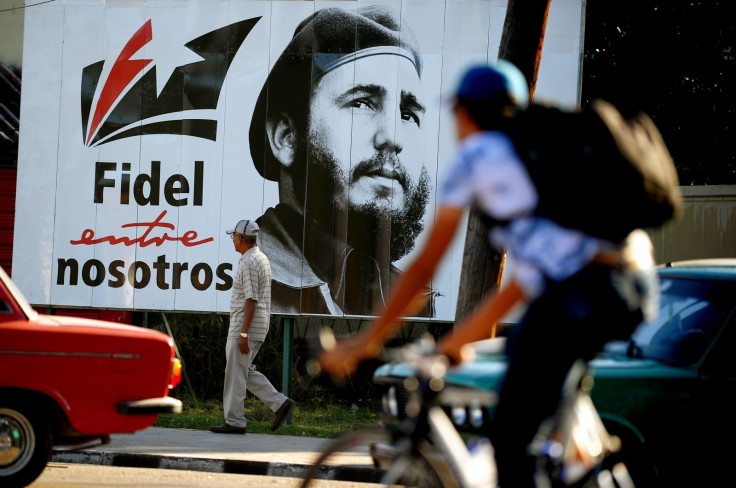Cuba is back to the 'Cold War days': Cubans see bleak future, one year after Fidel Castro's death
The country marked the first anniversary of the death of their former president with a week of vigils.
Fidel Castro died on 25 November, 2016 at the age of 90, and a year later, Cuba marks the passing of their former president with a week-long series of events. Ceremonies are being held across the island-nation, and will continue till 4 December, the day his ashes were laid to rest at the Santa Ifigenia cemetery in Santiago de Cuba.
The country has continued to respect his wishes that no street, square or building bears his name. Additionally, no statues or monuments have been erected in his honour. Despite this, memories of the Castro rule remain strong in the minds of people — Cubans on the island as well as those who migrated to the US.
"He was the best we've had as a leader," said Rene Perez, a Havana taxi driver told Reuters. His sentiments are echoed by many of the communist leader's supporters, especially those concerned for the future of the country. The current president, Castro's brother Raul has been slow to reform the nation and update the Soviet-style command economy. Additionally, the country's relationship with the US has worsened due to US President Donald Trump's more hostile stance.
"Not even we know what our future will be," Ariadna Valdivia, a high school teacher said. "Raul is ending his term in 2018, Fidel is already history, and I don't really see any way of improving things.
"Salaries are the same, food is always getting more expensive and now we have Trump tightening the embargo," she added.
Cuba is set to conduct elections to select delegates to municipal People's Power assemblies on 26 November that will imply a presidential change. For Cubans in America, the future of their homeland remains bleak. While many took to the streets to celebrate Castro's death, hoping it would usher in a new Cuba, a year later, they have become less optimistic.
"It's an intense, painful memory but the generation of my parents has died," Andy Gomez, the interim director of the University of Miami Institute for Cuban and Cuban-American Studies said. "The topic has lost some of its interest. I think there is a bit of Cuba fatigue now in the Cuban-American community."
Gomez believes the idea of the Cuban Revolution went to the grave along with Castro. "Using his own words that 'history will absolve me,' history hasn't absolved him of anything and maybe never will.
"I think we're back to the Cold War days, the process of normalization started under President Obama they're gone," he added to CBS Miami. "I think Cuba right now is probably in worse shape than they were in 1991 at the start of the special period when the Soviet Union collapsed."























